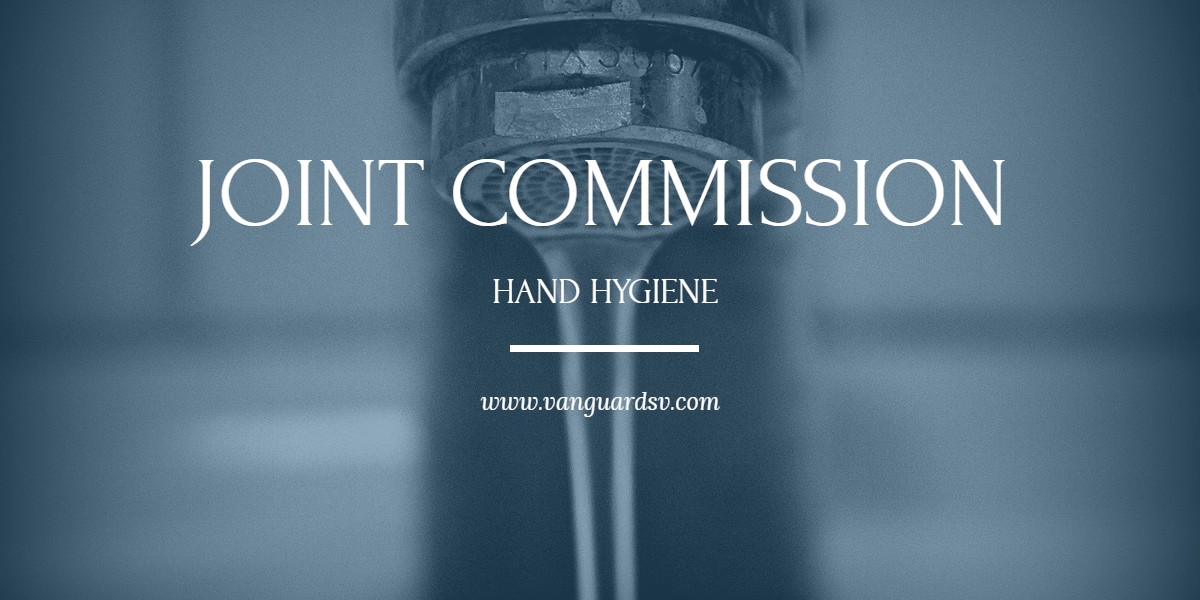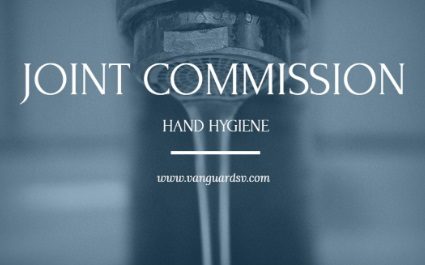Outsourcing your healthcare facilities' janitorial services can help maintain the standards and reduce the number of citations imposed by the Joint Commission for hand hygiene failures.

Outsourcing Janitorial Services to Meet Joint Commission Requirements for Hand Hygiene
Beginning January 1, 2018, the Joint Commission, in accordance with the National Patient Safety Goal (NPSG), will begin issuing citations for hand hygiene failures.
According to a recent statement released by the Joint Commission;
Beginning Jan. 1, 2018, any observation by surveyors of individual failure to perform hand hygiene in the process of direct patient care will be cited as a deficiency resulting in a Requirement for Improvement (RFI) under the Infection Prevention and Control (IC) chapter for all accreditation programs.
Why now?
Because organizations have had since 2004 to implement successful hand hygiene programs, The Joint Commission has determined that there has been sufficient time for all organizations to train personnel who engage in direct patient care.
While there are various causes for HAI, The Joint Commission has determined that failure to perform hand hygiene associated with direct care of patients should no longer be one of them.
Effective Jan. 1, 2018: Individual hand hygiene failures to be cited under IC, NPSG standards
Why Hand Hygiene Matters in Hospitals
According to the U.S. Centers for Disease Control and Prevention (CDC);
Most germs that cause serious infections in healthcare are spread by people’s actions.
Hand hygiene is a great way to prevent infections.
However, studies show that on average, healthcare providers clean their hands less than half of the times they should.
This contributes to the spread of healthcare-associated infections that affect 1 in 25 hospital patients on any given day.
Additionally, according to the World Health Organization (WHO);
It is estimated that at any one time, more than 1.4 million people worldwide are suffering from infections acquired in hospitals.
Health care-associated infections (HAI) occur worldwide and affect both developed and developing countries.
In developed countries, between 5% and 10% of patients acquire one or more infections and 15%–40% of patients admitted to critical care are thought to be affected.
Improved Hand Hygiene to Prevent Health Care-Associated Infections
However, according to Fierce Healthcare;
Although proper hand-hygiene is considered the most important measure to prevent the spread of infections, nearly 1 in 4 hospitals fail to fully comply with recommended guidelines.
This has resulted in an immeasurable loss to businesses and families.
People calling in sick costs this country billions of dollars a year, so clean hands will save businesses money.
Also, 100,000 people die each year from infections they’ve received at hospitals, and between 1 and 3 million people a year die in long-term care from healthcare-associated infections (HAIs).
Tips for Successfully Implementing the National Patient Safety Goal (NPSG) Hand Hygiene Requirements
The Joint Commission has four requirements to meet the needs of the NPSG:
- Implement a Program - Install hospital-grade liquid foam soap dispensers that use sealed packets for refilling. Establish training programs to instruct employees who come into contact with patients on how they are expected to wash their hands. Reaffirm requirements through ongoing training, posters, and emails.
- Set Goals for Improvement - Determine the current instance of Healthcare Acquired Infection (HAI) derived from insufficient hand hygiene and establish parameters which adhere to the Joint Commission's standards.
- Monitor Success - In accordance with Joint Commission requirements, periodically review and document NPSG adoption, success, and ongoing challenges.
- Improve Results Through Action - Employ Internet of Things (IoT) monitoring of soap and paper towel dispensers to ensure product availability. Gamify positive action, participation, and improvement by department to increase the likelihood of worker engagement.
References & Resources
- Joint Commission Will Now Cite Individual Hand-Hygiene Failures
- Joint Commission: Individual failure to wash hands will be cited as deficiency
- Targeted Solutions Tool for Hand Hygiene
Takeaway
Joint Commission accreditation is vital for the healthcare industry, from individual homecare practices to university hospitals, as well as the patients who pay for services from those organizations.
Maintaining the accreditation requires compliance on multiple levels, including the enforcement of hand hygiene practices, which has contributed to untold financial cost, and needless death.
Outsourcing your facilities basic hand hygiene product needs can be cost-effectively addressed by an experienced local provider.
If you would like to learn more about how outsourcing your healthcare facilities' janitorial services can help meet the requirements and offset the penalties for the Join Commissions hand hygiene standards–contact us today for a free quote!
In Bakersfield CA, call (661) 437-3253
In Fresno CA, call (559) 206-1059
In Valencia CA, or Santa Clarita CA, call (661) 437-3253



You must be logged in to post a comment.